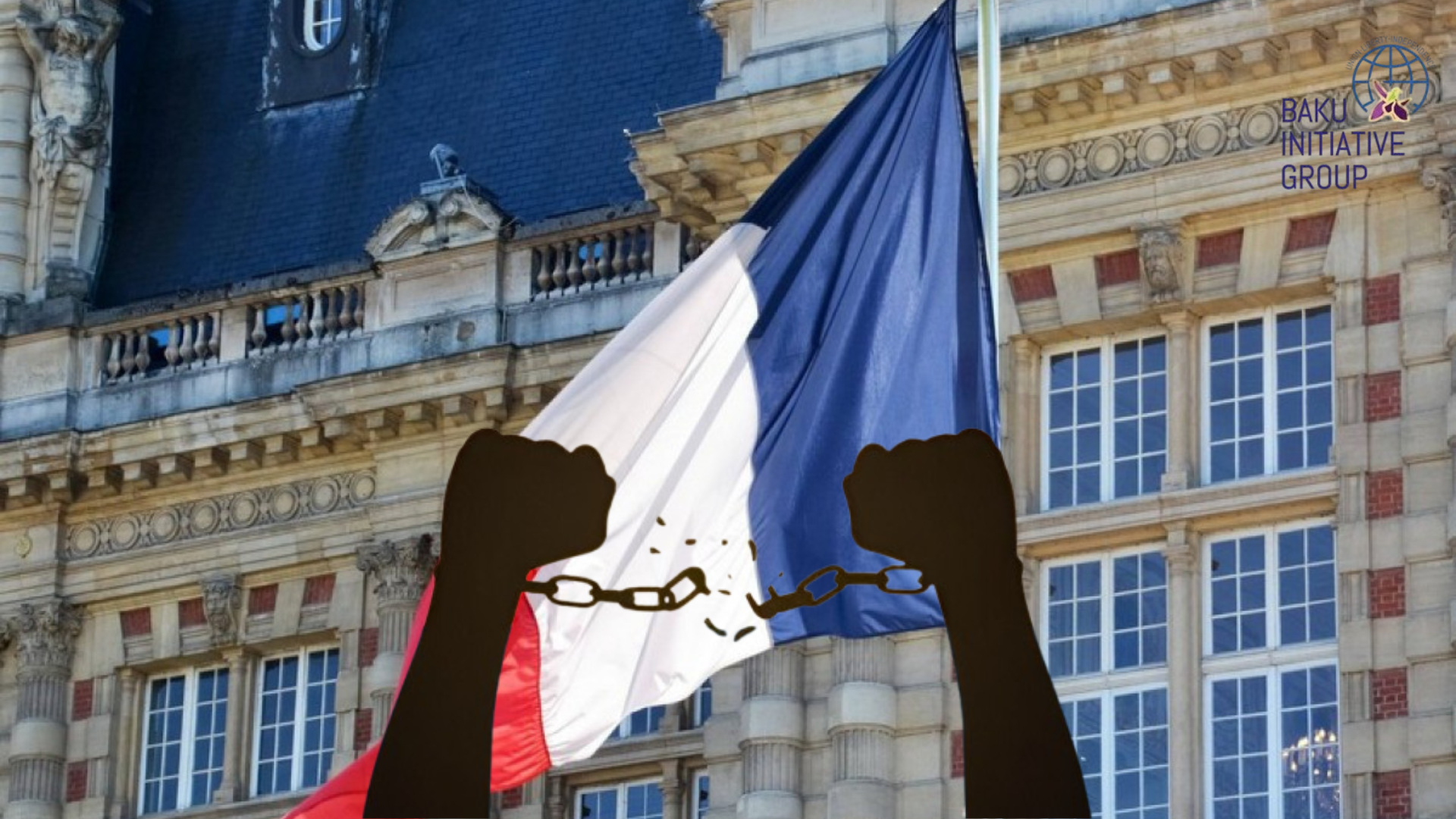Baku conference challenges colonialism’s modern legacy as France faces renewed scrutiny

As conversations on colonialism gain new urgency in global political discourse, Baku has emerged as a platform for confronting the unfinished business of decolonisation. The city is hosting a major international conference—“Imperial Structure: Colonial Ideologies and Realities”—gathering global experts, UN representatives, and decolonial scholars from Asia, Africa, the Caribbean, and beyond. The event is organised by the Baku Initiative Group (BIG), an organisation committed to supporting the full elimination of colonial practices and advocating for the rights of peoples still under foreign domination.
The conference marks another milestone in Azerbaijan’s growing role in the global anti-colonial movement. In recent years, BIG has spearheaded discussions on the lasting impact of colonialism, holding over a dozen international events since its inception. This latest gathering focuses on how colonial ideologies have shaped not only past injustices but also the ongoing systems of economic dependence, cultural suppression, and political inequality that persist today.
Abbas Abbasov, Executive Director of BIG, opened the event with a clear message: “The fight against colonialism is not a chapter in the past—it is a global responsibility to secure a just and equal future.” Abbasov described BIG as an international platform that gives voice to the peoples who continue to suffer from the socio-economic and environmental consequences of colonial domination. He emphasised the need to dismantle both the visible and subtle remnants of colonial ideologies, calling for international solidarity and the strengthening of legal mechanisms to end all forms of imperialism.
One of the most compelling interventions came from Dr. June Soomer, member of the UN Permanent Forum on People of African Descent, who highlighted the double-edged role of science and academia in the colonial project. “Science was once used to justify the domination of African peoples. Today, we must turn it into a tool for their liberation,” she said. Soomer underscored the importance of research and education in restoring dignity and justice to formerly colonised communities.
Panel discussions also explored the historical formation of racial hierarchies, the use of cultural erasure as a tool of empire, and the enduring role of language in shaping collective memory. Academics from Corsica, New Caledonia, Guadeloupe, and French Guiana shared first-hand accounts of systemic marginalisation by France, whose colonial policies remain a focal point of criticism throughout the conference.
France, once one of the largest colonial empires, faces mounting pressure to reconcile with its past—especially as new controversies erupt in its overseas territories. A recent announcement by French Justice Minister Gérald Darmanin to construct a high-security prison in French Guiana has triggered public outrage. Residents likened the move to a revival of France’s notorious penal colonies, particularly the infamous Devil’s Island facility, closed in the mid-20th century after decades of brutal operation. Locals and officials condemned the plan as a form of colonial regression and a dangerous imposition on the region, warning that housing violent inmates from mainland France would aggravate social tensions.
French Guiana’s elected officials were not consulted about the project. In protest, Deputy Jean-Victor Castor called it “an insult to our history,” while community leaders decried the unilateral nature of Paris’s decision-making as a lingering vestige of imperial rule.
Elsewhere in France’s remaining territories, similar sentiments of neglect and cultural suppression have surfaced. In Corsica, where the local language and identity have long been sidelined by French authorities, the government’s refusal to grant meaningful autonomy has provoked decades of resistance. Though Corsica was annexed by France in 1769, the island’s people have struggled to preserve their language, often facing what scholars describe as institutional assimilation and linguistic discrimination.
Speakers at the Baku event argued that such policies are not isolated episodes, but rather part of a broader structure of neocolonialism that continues to operate through economic coercion, political dependency, and cultural domination. As one legal scholar noted, “Colonialism did not vanish—it simply changed its form.”
The Baku Initiative Group aims to keep these conversations alive and global. In just two years, the organisation has held 14 international conferences, workshops, and public forums on colonialism and its contemporary manifestations. With participation from UN agencies and legal institutions, BIG has positioned itself as a leading voice in pushing for accountability and the completion of the decolonisation process.
As the world grapples with historical injustice and growing demands for reparative justice, the Baku conference sends a powerful message: colonialism is not history—it is a present-day challenge. And the road to global equality requires more than symbolic gestures; it demands structural change, international cooperation, and a firm commitment to truth and justice.
Here we are to serve you with news right now. It does not cost much, but worth your attention.
Choose to support open, independent, quality journalism and subscribe on a monthly basis.
By subscribing to our online newspaper, you can have full digital access to all news, analysis, and much more.
You can also follow AzerNEWS on Twitter @AzerNewsAz or Facebook @AzerNewsNewspaper
Thank you!

